Thomas Jefferson once said, ŌĆ£Our liberty depends on the freedom of the press, and that cannot be limited without being lost.ŌĆØ JeffersonŌĆÖs words still ring true õĖĆ today, as press freedom in the White House is being severely limited, we have lost our rights as journalists to tell the full story.
On Feb. 25, White House press secretary Karoline Leavitt announced that President Donald Trump and his administration would be selecting journalists for their press pool. Press access will no longer be determined by the White House Correspondents Association, which has been in control of White House journalists since 1914. This organization has been an avid supporter of the freedom of the press and diverse coverage of the presidency; the suppression of their role reflects a concerning change in the atmosphere of journalistic liberty.┬Ā
ŌĆ£The government is limiting free speech [and] freedom of the press. I’m surprised that we’re still talking about this because 20 years ago, no president would have done it, and courts would have shot it down almost immediately,ŌĆØ chief communications officer of the Parkway School District and former journalist Elisa Tomich said.
One of the first shifts, defining limits on First Amendment rights, was the blocking of Associated Press (AP) from the White House, following discourse after the newspaper refused to rename the Gulf of Mexico as the ŌĆ£Gulf of AmericaŌĆØ in its guidelines. U.S. District Judge Trevor N. McFadden ruled that AP news reporters will not be restored access to the presidential coverage at the White House, causing further concern about the growing link between governmental opinion and public journalism. If our government fails to ensure a diversity of coverage between political sides by including a range of reporters in the room, the news that the public receives may be biased or even inaccurate.┬Ā
ŌĆ£I think that [Trump] shouldn’t get to choose certain people just so they can write in favor of him, journalist and sophomore Yusra Khan said. ŌĆ£We should have a variety of journalists, especially from big sources like the New York Times, and more resources that are ŌĆśunbiased.ŌĆÖ I don’t think you should be able to pick and choose what’s being written about.ŌĆØ
The new administration’s changes reflect distrust in the media that President Donald Trump had previously weaponized. Trump has called for media organizations to be investigated by the Federal Communications Commission, headed by Chairman Brendan Carr. Carr is one of the authors of the Heritage Foundation’s manifesto Project 2025, which prioritizes extreme right-wing policies. In his role, Carr has pushed investigations onto organizations like PBS, Paramount Global, Disney, ABC and Comcast õĖĆ some pertaining to continued Diversity, Equity, and Inclusivity (DEI) policies and others simply in punishment for whom Trump dislikes. Either way, these investigations have created a hostile journalism community, fearful of possible retaliation as a cost to their pursuit of truth-telling.┬Ā
We have to take a step towards protecting our rights, pushing through the discomfort and the limitations that have been placed on us as journalists, specifically as student journalists. Looking back, we first saw our liberties threatened in the 1988 landmark student press freedom case, Hazelwood v. Kuhlmeier, which reached the Supreme Court. Student rights everywhere were checked, as it was decided that high school newspapers were not public forums. With this case looming over and anti-press rhetoric coming down from the president, it is hard to imagine that administrators will not take a more stringent perspective on student work.┬Ā
We have seen progress through the New Voices Bill, which in Missouri hopes to overturn the Kuhlmeier decision and create more protections for student journalists. However, without bills like these, the Trump administration will continue to take a hit on not just those in the White House but smaller communities of student journalists across the country.┬Ā
ŌĆ£I left journalism right before Trump was elected the first time. What people thought was inappropriate [then], are things that people do now on a regular basis. To bully reporters, or to shame them didn’t happen then,ŌĆØ Tomich said.
This situation cannot be regarded as an issue pertaining only to national, big-name newspapers, as the restrictions have extended into an even more public sphere of information: social media. In the past year, respondents to a global survey have revealed that 34.5% of social media users utilize the platforms for news information, meaning a large portion of the voting population gains its political knowledge from social media. The rise of social media news comes with several coinciding costs, including algorithm bias, misinformation, and the phenomenon of ŌĆ£echo chambers,ŌĆØ where users are limited towards media environments where they only encounter the same beliefs as their own ŌĆö a key factor towards the sharp polarization of political parties in the modern day, and perhaps even a reason why these White House restrictions have become more prominent. These consequences have only been augmented by the Trump administrationŌĆÖs activity on social media, manipulating the medium towards promoting a particular view and ostracizing another.┬Ā
For example, while some media has been ignored and ousted by the Trump administration, other media has been utilized heavily. X, formerly known as Twitter, banned Trump from use after the Jan. 6 insurrection on Capitol Hill. When businessman Elon Musk took over the platform, Trump regained access and now posts frequently. Musk, who is now the senior advisor to the president, has used the platform as his own megaphone to push the Trump administration’s agenda.┬Ā
Moreover, a computational analysis of X showed that the platform has an algorithmic bias, pushing President TrumpŌĆÖs own messages to the front of feeds. ItŌĆÖs clear that for the 111.3 million X users in the U.S., the administration is misusing its power when it comes to media. By putting down the opposition and promoting a singular side of the story, the media has lost control as an unbiased entity.┬Ā
Podcasts have also risen as a popular source of political information, especially in the past election cycle, where both Trump and Democratic candidate Kamala Harris used the platforms to promote their candidacies. In particular, Trump has also utilized podcasts that target young men to promote his agenda to an audience that lacks efficacy. These podcasts, like the Joe Rogan Experience and Impaulsive with Logan Paul, have been the center point of attention for young male users, often a place where this demographic is getting any and all of their news. These podcasts have reached hundreds of thousands of people but are misogynistic and dangerous at the core. The concern comes when someone like the president appears on podcasts that spread misinformation, causing the information to sound credible and feel understandable ŌĆö despite the fact that inclusive and comprehensive coverage of many topics is missing.┬Ā
While it is up to the courts and our governmentŌĆÖs system to reinstate diverse coverage of White House events, audiences across the country should be making the deliberate choice to vary their sources of information. Parts of a story shown on one site may be missing on another, so as readers, viewers and listeners, we must understand the value of diverse and reliable information, especially in this time of turmoil.┬Ā
ŌĆ£It seems like there’s no shortage of information. I worry about people only turning to certain publications because the news confirms their biases, which [hurts] their understanding of the world. It hurts our democracy,ŌĆØ Tomich said.┬Ā
When student journalists are silenced, our democracy is threatened. The more we let our government attack the media, suffocating and suppressing us, the further and further we diverge from the very basis of our country and constitution. Student journalism should not be a privilege but a necessity and a right that every single individual should have in K-12 education. Now, more than ever, we must take the necessary steps to protect it.
ŌĆ£Especially at this time, it’s really important to uphold our rights and our amendments, even when we see them being violated by our President. We should always keep in mind to be hopeful,ŌĆØ Khan said. ŌĆ£You have more power than you think to express your ideas and express your views.ŌĆØ

![Red, white and blue, the American flag holds the values of our democracy. The fight that we once endured has returned, as student journalists and senior correspondents across the country are losing their voices due to government control. ŌĆ£[Are] the White House and [the] government limiting free speech [and] freedom of the press? Yes [they are],ŌĆØ chief communications officer of the Parkway School District and former journalist Elisa Tomich said.](https://pwestpathfinder.com/wp-content/uploads/2025/03/Untitled-design-14.jpg)

![Dressed up as the varsity girlsŌĆÖ tennis coach Katelyn Arenos, senior Kate Johnson and junior Mireya David hand out candy at West HighŌĆÖs annual trunk or treat event. This year, the trunk or treat was moved inside as a result of adverse weather. ŌĆ£As a senior, I care less about Halloween now. Teachers will bring their kids and families [to WestŌĆÖs Trunk or Treat], but there were fewer [this year] because they just thought it was canceled [due to the] rain. [With] Halloween, I think you care less the older you get,ŌĆØ Johnson said.](https://pwestpathfinder.com/wp-content/uploads/2025/10/DSC00892-1-1200x800.jpg)
![Leaning on the podium, superintendent Melissa Schneider speaks to Parkway journalism students during a press conference. Schneider joined Parkway in July after working in the Thompson School District in Colorado. ŌĆ£My plan [to bond with students] is to get things on my calendar as much as possible. For example, being in [classes] is very special to me. I am trying to be opportunistic [meeting] kids [and] being in [the school] buildings. I have all the sports schedules and the fine arts schedules on my calendar, so that when I'm available, I can get to them,ŌĆØ Schneider said.](https://pwestpathfinder.com/wp-content/uploads/2025/09/IMG_5425-1200x943.jpeg)

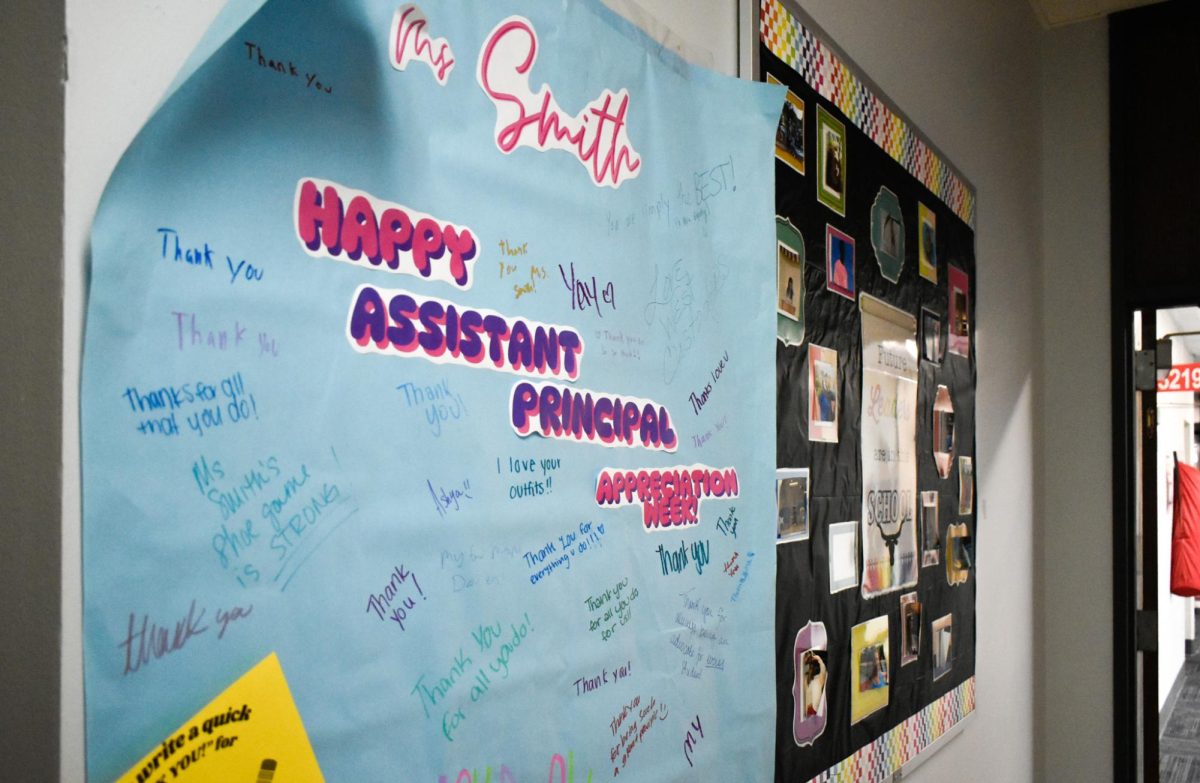
![A board in the Parkway West counseling department displays pennants of selective universities. With a wide range of students interested in attending, itŌĆÖs important that these schools have clear priorities when deciding who to admit. ŌĆ£[Washington University] had the major that I wanted, psychology, philosophy, neuroscience. That's a holistic study of the brain, and [WashU is] the only college in the world that offers that. That's the main reason I wanted to go; I got into that program,ŌĆØ senior Dima Layth said.](https://pwestpathfinder.com/wp-content/uploads/2025/02/Flag-1.png)
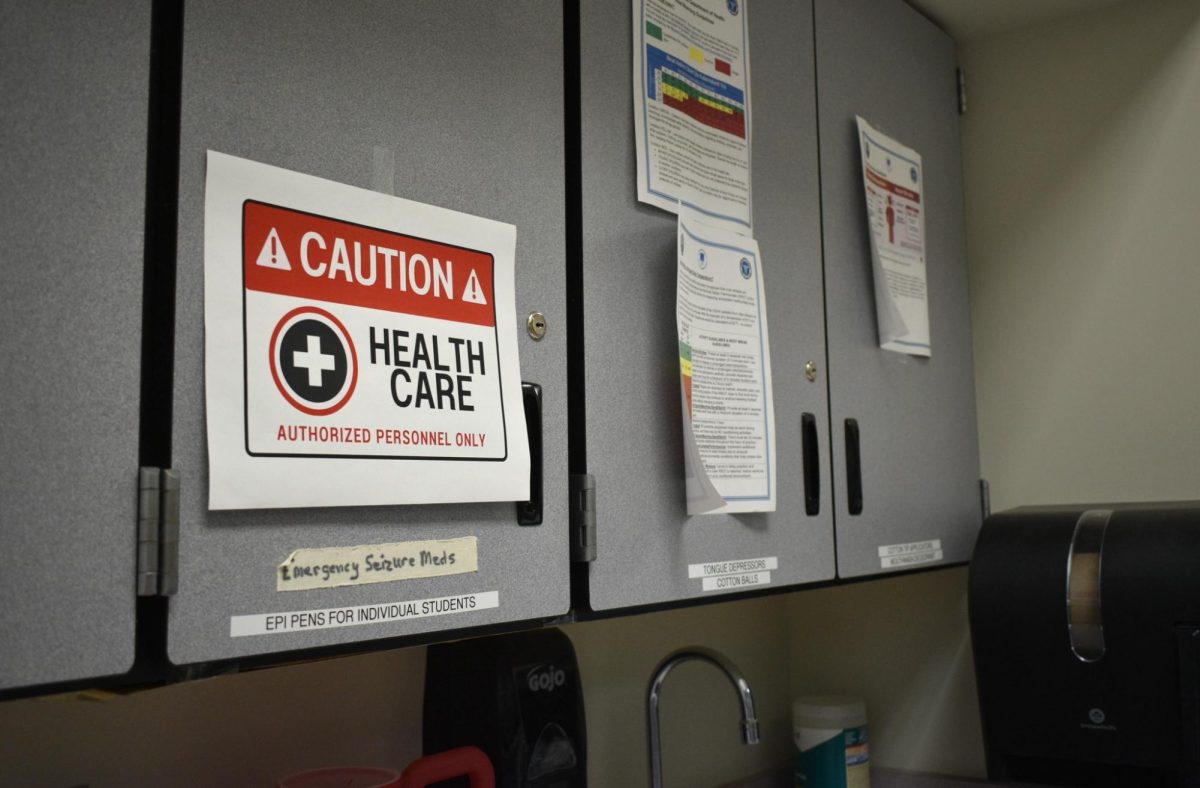
![Within the U.S., the busiest shopping period of the year is Cyber Week, the time from Thanksgiving through Black Friday and Cyber Monday. This year, shoppers spent $13.3 billion on Cyber Monday, which is a 7.3% year-over-year increase from 2023. ŌĆ£When I was younger, I would always be out with my mom getting Christmas gifts or just shopping in general. Now, as she has gotten older, I've noticed [that almost] every day, I'll open the front door and there's three packages that my mom has ordered. Part of that is she just doesn't always have the time to go to a store for 30 minutes to an hour, but the other part is when she gets bored, she has easy access to [shopping],ŌĆØ junior Grace Garetson said.](https://pwestpathfinder.com/wp-content/uploads/2024/12/DSC_0249.JPG-1200x801.jpg)
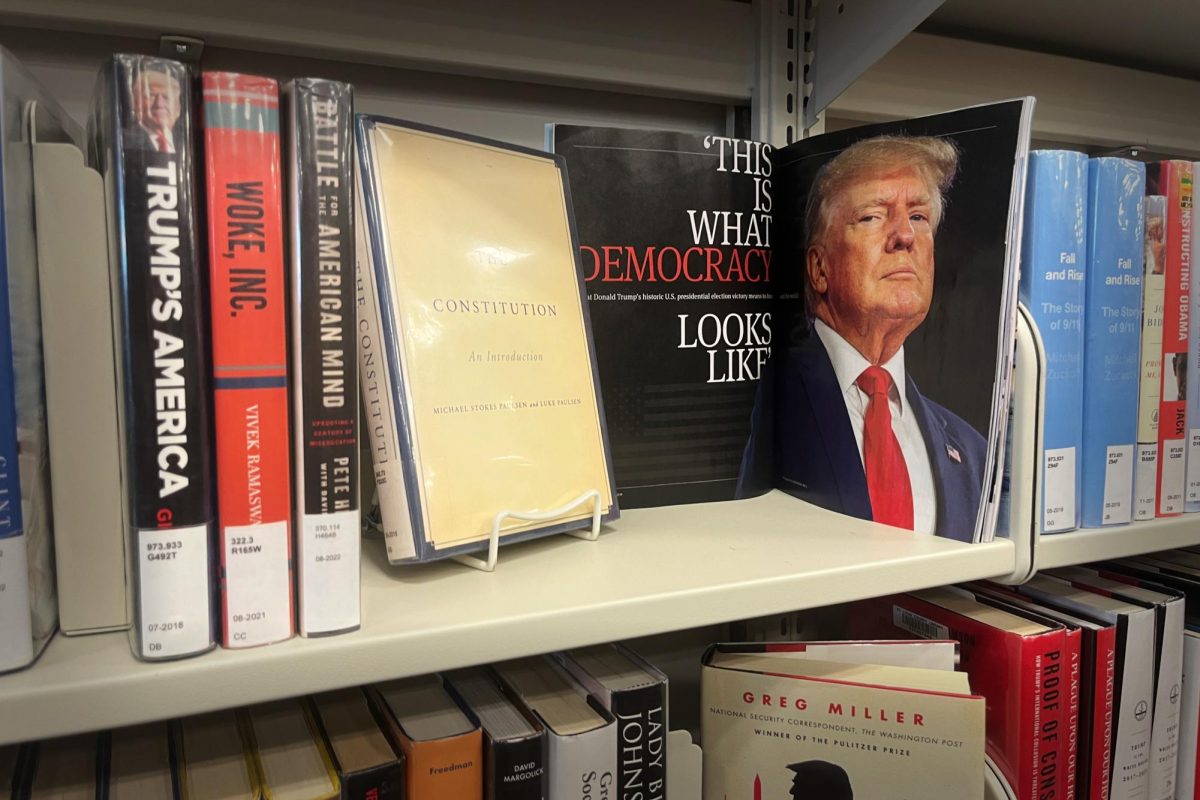
![Senior Sally Peters stands in the history hallway, contemplating her choices in the 2024 United States and Missouri elections on Nov. 5. As a member of Diplomacy Club, Peters has discussed key candidates and issues in contemporary American politics. ŌĆ£[As students], we're starting to become adults. We're realizing how much the policies that are enforced and the laws that make it through the House and Senate are starting to affect us. [Opportunities such as] AP [U.S.Government] and Diplomacy Club [make elections feel] a lot more real,ŌĆØ Diplomacy Club vice president and senior Nidhisha Pejathaya said.](https://pwestpathfinder.com/wp-content/uploads/2024/10/Flag-1-1.png)
![Mounting school pressure can leave many students overworked and overstressed. Schools must give students the necessary resources to help assuage student mental health issues and prevent the development of serious crises. ŌĆ£The biggest thing [schools] can do [to protect student mental health] is offer more time [to do work], like a study hall, or offer more support from teachers so that students don't feel stressed out and can get help in areas that they need,ŌĆØ senior Bhavya Gupta said.](https://pwestpathfinder.com/wp-content/uploads/2024/09/unnamed-4.jpg)
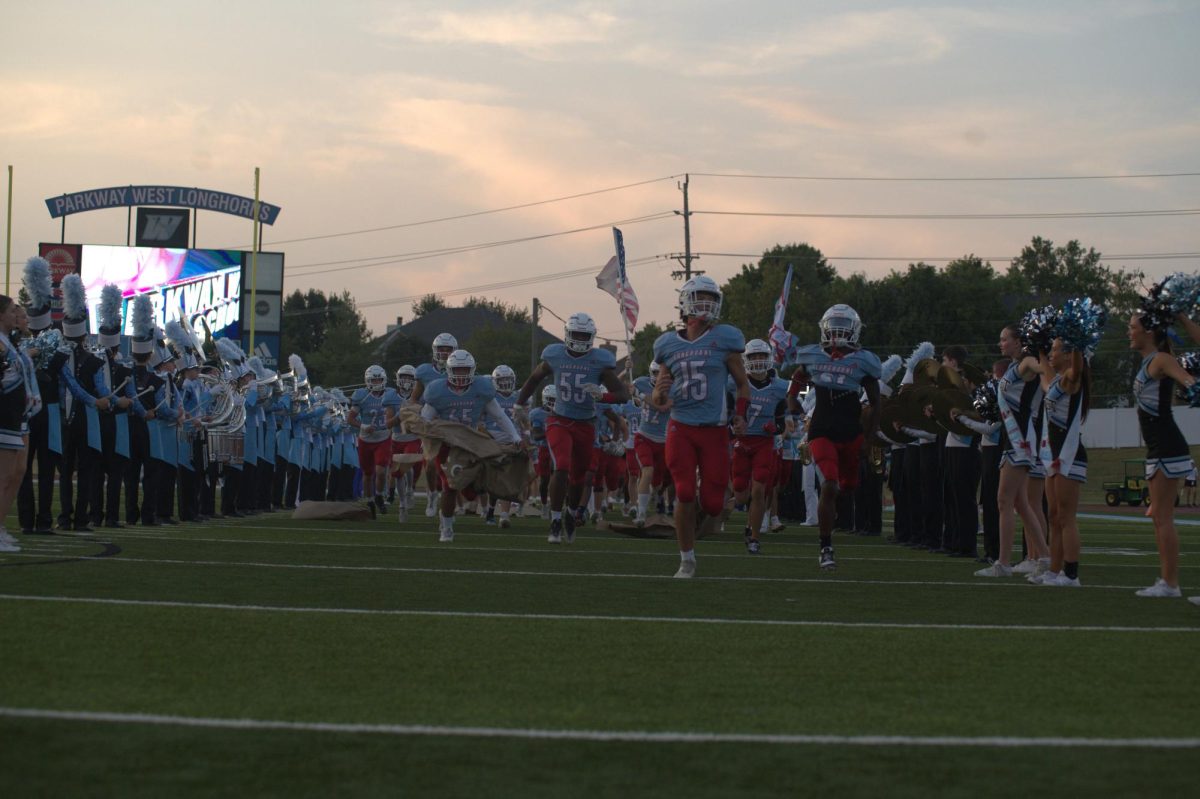
![Sophomore Shree Sikkal Kumar serves the ball across the court in a match against Lindbergh. Sikkal Kumar has been a varsity member of the varsity girlsŌĆÖ tennis team for two years, helping her earn the number two rank in Class 2 District 2.ŌĆ£When matches are close, itŌĆÖs easy to get nervous, but I [ground] myself by[staying] confident and ready to play,ŌĆØ Sikkal Kumar said.](https://pwestpathfinder.com/wp-content/uploads/2025/11/DSC2801-1200x798.jpg)
![Focused on providing exceptional service, sophomore Darsh Mahapatra carefully cleans the door of a customerŌĆÖs car. Mahapatra has always believed his customers deserve nothing less than the best. ŌĆ£[If] theyŌĆÖre trusting us with their car and our service, then I am convinced that they deserve our 100 percent effort and beyond,ŌĆØ Mahapatra said.](https://pwestpathfinder.com/wp-content/uploads/2025/10/DSC_0018-1200x800.jpg)
![Sophomore Aleix Pi de Cabanyes Navarro (left) finishes up a soccer game while junior Ava Muench (right) warms up for cross country practice. The two came to Parkway West High School as exchange students for the 2025-2026 school year. ŌĆ£The goal for the [exchange] program is to provide opportunities for both Parkway students and our international exchange students to learn about other cultures, build connections and become confident, capable, curious and caring ŌĆö ParkwayŌĆÖs Four CŌĆÖs ŌĆö in the process,ŌĆØ Exchange Program Lead Lauren Farrelly said.](https://pwestpathfinder.com/wp-content/uploads/2025/10/Feature-Photo-1200x800.png)
![Gazing across the stage, sophomore Alexis Monteleone performs in the school theater. The Monteleone familyŌĆÖs band ŌĆ£Monte and the MachineŌĆØ has been releasing music since 2012, but Alexis started her own solo career in 2024 with the release of her first single, Crying Skies. ŌĆ£My whole family is very musical, [and I especially] love writing [songs with them],ŌĆØ Monteleone said.](https://pwestpathfinder.com/wp-content/uploads/2025/09/DSC7463-1200x798.jpg)

![Leaping through the air, senior Tyler Watts celebrates his first goal of the season, which put the Longhorns up 1-0 against the Lafayette Lancers. Watts decided to play soccer for West for his last year of high school and secured a spot on the varsity roster. ŌĆ£[Playing soccer for West] is something I had always dreamed of, but hadnŌĆÖt really had a good opportunity to do until now. ItŌĆÖs [really] fun being out [on the field], and IŌĆÖm glad I decided to join the team. ItŌĆÖs just all about having fun with the boys and enjoying what time we have left together,ŌĆØ Watts said.](https://pwestpathfinder.com/wp-content/uploads/2025/09/DSC_1951-1200x855.jpg)
![Shifting global trade, President Donald TrumpŌĆÖs tariffs are raising concerns about economic stability for the U.S. and other countries alike. ŌĆ£[The tariffs are] going to pose a distinct challenge to the U.S. economy and a challenge to the global economy on the whole because it's going to greatly upset who trades with who and where resources and products are going to come from,ŌĆØ social studies teacher Melvin Trotier said.](https://pwestpathfinder.com/wp-content/uploads/2025/05/MDB_3456-1200x800.jpg)

![Pitching the ball on Apr. 14, senior Henry Wild and his team play against Belleville East. Wild was named scholar athlete of the year by St. Louis Post-Dispatch after maintaining a high cumulative GPA and staying involved with athletics for all of high school. ŌĆ£ItŌĆÖs an amazing honor. I feel very blessed to have the opportunity to represent my school [and] what [it] stands for,ŌĆØ Wild said.](https://pwestpathfinder.com/wp-content/uploads/2025/05/unnamed-6-1200x714.jpg)
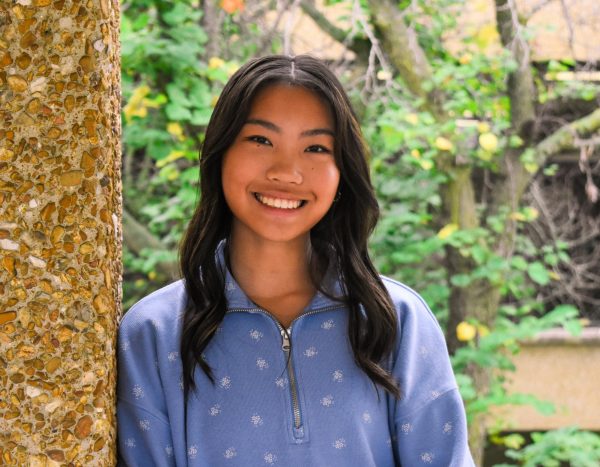
Serena Liu • Apr 14, 2025 at 11:31 pm
Incredible article!
Kelly Barrett • Apr 9, 2025 at 9:37 am
This is so well-written and so very powerful. I’d love to use it as an exemplar for the students in my journalism program, particularly for how well you dug into context and set up reader inferences for how far-reaching media bias and its damages can extend under this new administration. Congrats on Best of SNO! And thank you for sharing such amazing journalism with this platform and its readers. I advise students in a new journalism program in Southern NJ, and it’s articles like this that keep new journalists motivated and pushing themselves to write and achieve more. Thank you, and good luck to you in your next chapter wherever that may be!